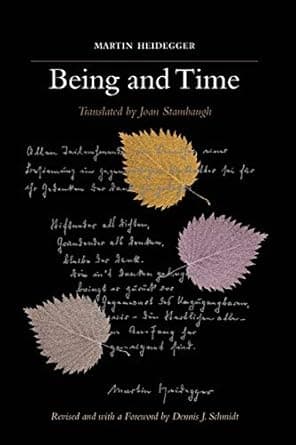
Book Stats
234
Upvotes
89
Downvotes
+145
Net Score
Being and Time
by Martin Heidegger
Description
One of the most important and challenging philosophical works of the twentieth century—a radical rethinking of what it means to exist.
Heidegger's revolutionary investigation into the nature of Being begins with the question that he argues Western philosophy has forgotten: What does it mean for something to be? Rather than starting with abstract concepts or logical proofs, Heidegger examines human existence (Dasein—literally "being-there") as the unique entity that can ask questions about Being itself.
This is not philosophy for casual readers—Heidegger's dense, often invented terminology and complex argumentation require serious engagement. But the rewards are immense for those willing to work through his insights. He shows how human existence is fundamentally different from the existence of objects: we don't simply exist in the world, we are constituted by our relationships to the world, to others, and to our own possibilities.
Central to Heidegger's analysis is the concept of "thrownness"—we find ourselves thrown into existence without choosing our historical situation, culture, or initial circumstances. Yet we are also "projection"—always oriented toward future possibilities, defining ourselves through our choices and commitments. This tension between facticity and possibility creates the fundamental anxiety that characterizes human existence.
Heidegger's exploration of temporality revolutionized philosophical thinking about time. He argues that human time is not the measurable, sequential time of clocks and calendars, but lived time—past, present, and future are united in every moment of conscious experience. Our sense of our own mortality gives urgency and meaning to our choices.
Despite the controversy surrounding Heidegger's later political associations, *Being and Time* remains essential reading for understanding twentieth-century thought. Its influence extends far beyond philosophy, affecting psychology, literature, theology, and political theory. This is philosophy that changes how you see existence itself.